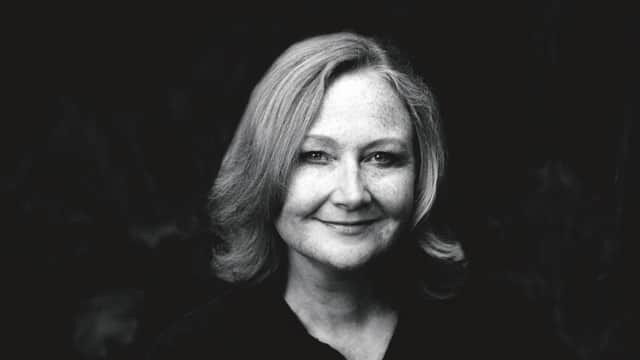Book review: Valentine, by Elizabeth Wetmore


Valentine is a first novel, set in the 1970s in and around the West Texas town of Odessa, where the author grew up. Elizabeth Wetmore is a graduate of the famous Iowa Writers Workshop, and one might have guessed this for there is an abundance of detail, a preference for almost static scenes and a consequent distrust of stories of which, paradoxically, there are many, taking some time to emerge. The novel gives the impression of having been worked on for a long time, so it’s no surprise to learn that, in the American way, Wetmore has been the recipient of fellowships, grants, scholarships and appointments as a writer-in-residence. She has many qualities and the novel is engaging, even at times compelling, but it is very slow, and it is not unfair to call it self-indulgent.
It begins with a crime, and the crime and its consequences run through to the end, even if we are often diverted from them. A 14-year-old Mexican girl is picked up by a young American, already probably drunk after a stint working in the oilfield. When she resists rape, he beats her up and persists. Towards dawn when he has passed out, she escapes and makes her way to a homestead. The woman of the house, Mary Rose, who has a young daughter herself, admits her (to the subsequent anger of her husband) and when the boy follows, she deters him with her rifle (which may or may not be loaded) and the matter is reported to the police.
Advertisement
Hide AdActually, we lose sight of the crime for long passages in the novel, which is told from the point of view of half a dozen other women, sometimes in their voices, but it lurks in the background. The reception of the story is not surprisingly confused and darkened by racism; there are, for instance, decent church-going women who think how terrible it must be for the boy’s mother to have her son in jail, accused of such a crime – and only, they imply, even when they don’t say – when it is all just a fuss about a Mexican girl and everybody knows what they are like.
There are always problems when a novelist chooses to tell a story through different voices and from different perspectives. The first is of course that the narrative will become disjointed and lose its urgency; the second, that almost inevitably some of the characters through whom the story is being revealed will be more interesting than others, so that the reader becomes impatient, anxious to get back to what is surely the heart of the matter. All this is hard to avoid when you are trying, as Wetmore is – and indeed for the most past succeeding in the attempt – to enrich and enlarge the narrative in order to present us with a picture and analysis of a whole society. Wetmore doesn’t quite avoid these traps. There are passages which may have even the most sympathetic or indulgent reader wishing to return to another more interesting and engaging character.
Nevertheless, there is much to admire and enjoy in this novel. There is a fine sense of place, an understanding of hardship and its corrosive effect on character, a recognition and realization of the courage with which so many of the women meet adversity – even, somewhat surprisingly, an understanding that the often unsympathetic response of their men and their failure to understand are themselves a response to the harsh demands of their working life and the failures they experience. This is life endured most of the time on the edge in a desert landscape under a burning sun.
There is also a recognition of the strength given by the habit of understatement in an unforgiving world. “You might surprise yourself,” a husband near death says, “after I’m gone.” “I doubt that very seriously,” his wife replies. The same woman, when bereaved , says flatly that she doesn’t care for any company. This, like much in the novel, rings true.
This is a novel that gives the impression of having been lived with for a long time – too long perhaps. There is extravagance here. Wetmore’s second novel will be interesting.
Valentine, by Elizabeth Wetmore, 4th Estate, 308pp, £14.99
A message from the Editor:
Thank you for reading this story on our website. While I have your attention, I also have an important request to make of you.
Advertisement
Hide AdWith the coronavirus lockdown having a major impact on many of our advertisers - and consequently the revenue we receive - we are more reliant than ever on you taking out a digital subscription.
Subscribe to scotsman.com and enjoy unlimited access to Scottish news and information online and on our app. With a digital subscription, you can read more than 5 articles, see fewer ads, enjoy faster load times, and get access to exclusive newsletters and content. Visit https://www.scotsman.com/subscriptions now to sign up.
Joy Yates, Editorial Director